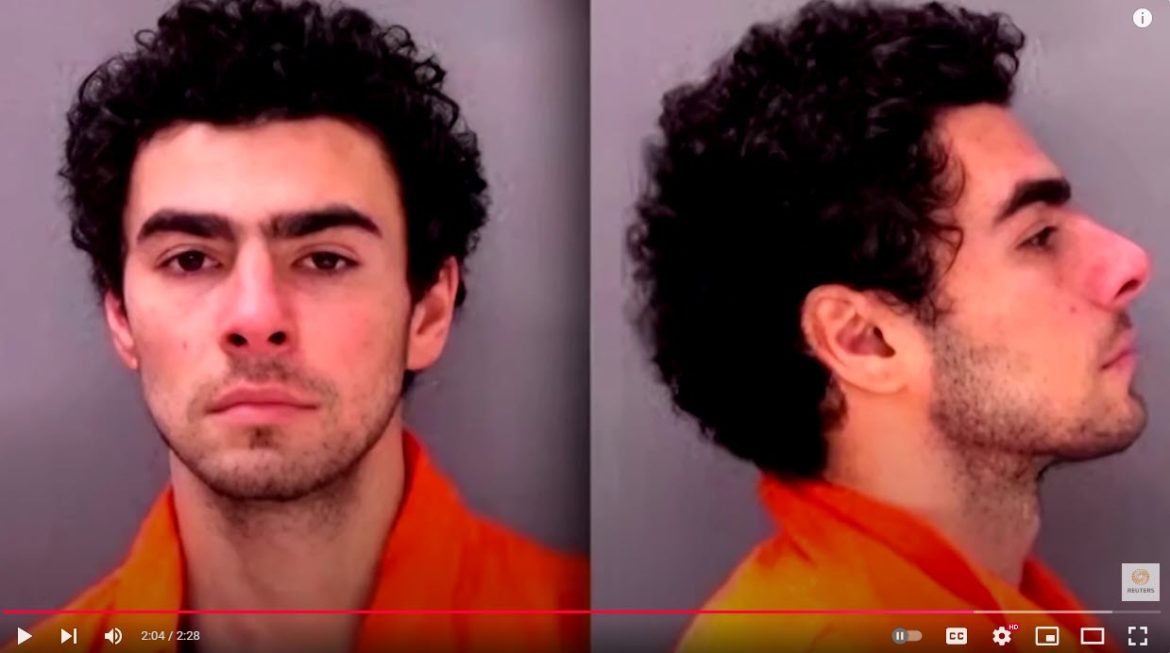Luigi Mangione, 26, faces a grand jury indictment for the fatal shooting of UnitedHealthcare CEO Brian Thompson earlier this month on a Manhattan street. The Manhattan District Attorney’s Office, led by Alvin Bragg, announced the indictment, which includes charges of murder, terrorism, and multiple weapons offenses. Mangione remains in custody in Pennsylvania, where he was apprehended at a McDonald’s on December 9, five days after the killing.
The indictment alleges that Mangione shot Thompson in a deliberate and premeditated act on December 4, shocking the corporate and medical communities. Thompson, known for his leadership in healthcare innovation, was gunned down while walking to a meeting near his Manhattan office. Prosecutors describe the attack as calculated, noting Mangione’s possession of multiple firearms and evidence linking him to the crime scene.
Evidence and Charges
The grand jury indictment includes a dozen charges, such as first- and second-degree murder, terrorism, and illegal possession of firearms. District Attorney Bragg highlighted that the inclusion of terrorism charges reflects the broader societal implications of the crime, suggesting that Mangione intended to instill fear beyond the immediate act of violence.
Evidence presented to the grand jury reportedly includes surveillance footage, eyewitness testimonies, and ballistic analysis directly tying Mangione to the weapon used in the shooting. Investigators have not publicly disclosed Mangione’s motive, but early reports suggest that his actions may have been influenced by grievances with corporate America or healthcare policies.
Public Opinion and Controversy
In a shocking development, a recent poll by Emerson College reveals that 41 percent of young Americans find the murder of Brian Thompson acceptable. The survey, conducted among 1,000 participants last week, shows that 24 percent of respondents aged 18 to 29 consider the execution-style killing “somewhat acceptable,” while 17 percent view it as “totally acceptable.” The poll underscores growing resentment among some younger individuals toward the healthcare industry, with social media platforms amplifying anger and, in some cases, praise for the alleged killer.
The survey results have sparked outrage and debate, with many questioning the ethical and societal implications of such attitudes. Social media discussions reveal a divide, with some condemning the violence unequivocally while others frame it as a reaction to perceived injustices in the healthcare system.
Arrest and Legal Proceedings
Mangione’s arrest in Pennsylvania followed a multi-state manhunt coordinated by local and federal law enforcement. Officials tracked him to a fast-food restaurant using surveillance footage and credit card activity. He was taken into custody without incident and is expected to be extradited to New York as early as tomorrow. Prosecutors have signaled their intent to seek the maximum penalty, with first-degree murder carrying a sentence of 20 years to life in prison.
Community Impact and Reactions
The killing has left the healthcare and corporate communities in shock. Brian Thompson was a prominent figure in healthcare reform, known for advocating accessibility and innovation within UnitedHealthcare. Colleagues and public officials have expressed condolences to his family while condemning the senseless act of violence.
In a press conference, Governor Kathy Hochul addressed the tragedy, emphasizing the need for continued vigilance in ensuring public safety. Meanwhile, corporate leaders across the nation have called for greater security measures to protect executives from targeted acts of violence.
Next Steps in the Case
Mangione’s extradition to New York and his pending arraignment in Manhattan Criminal Court are expected to draw significant public and media attention. The legal proceedings are likely to delve deeper into Mangione’s motives and whether his actions reflect broader societal tensions or a personal vendetta.
For now, Thompson’s tragic death and the public reaction it has elicited highlight the complex intersection of corporate influence, public sentiment, and violent crime. As the case unfolds, it will test the legal and ethical boundaries of justice in the face of such a high-profile killing.



